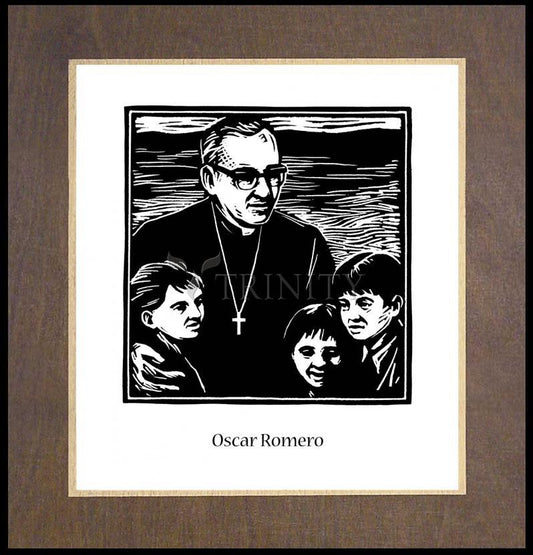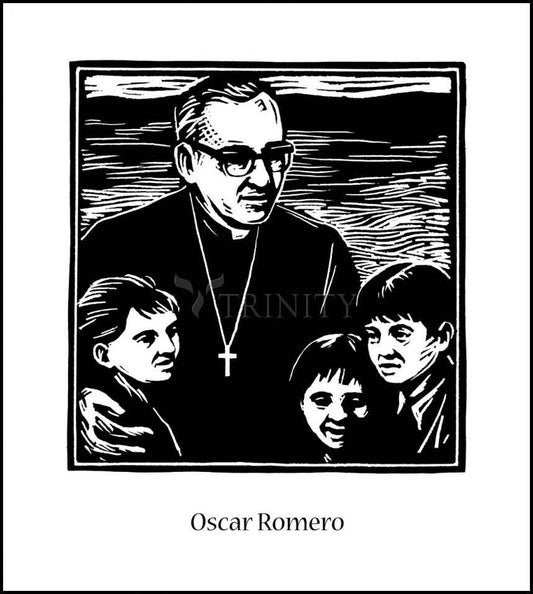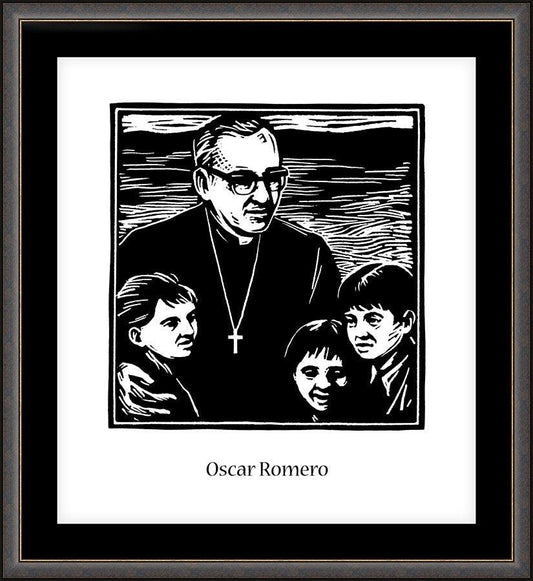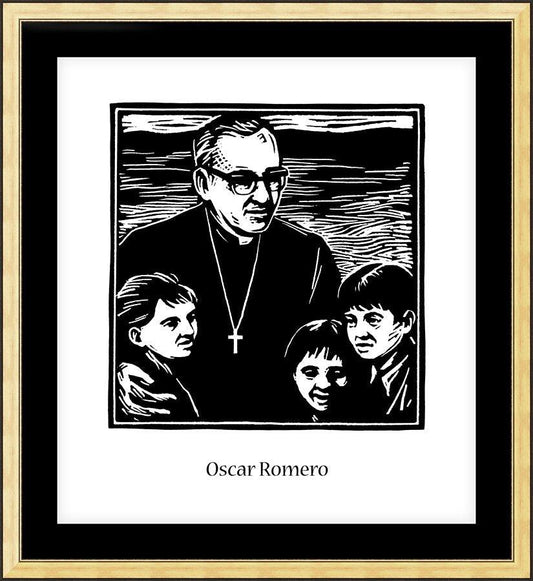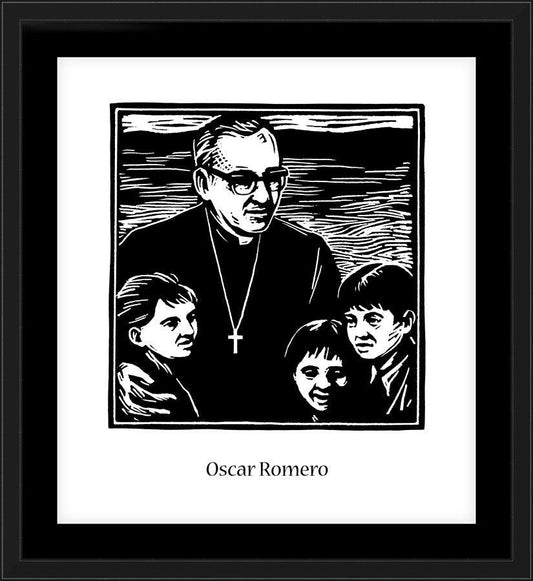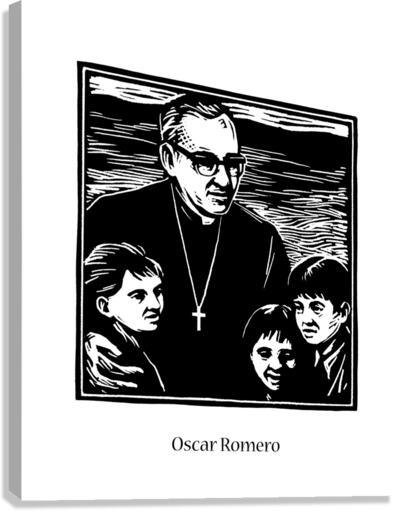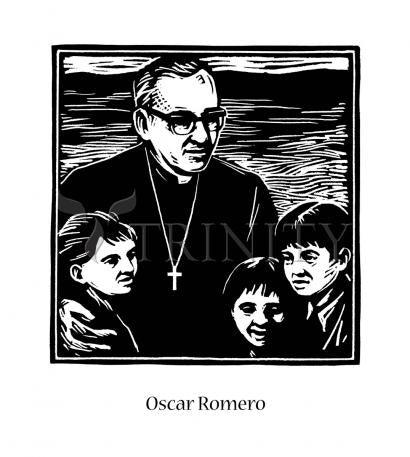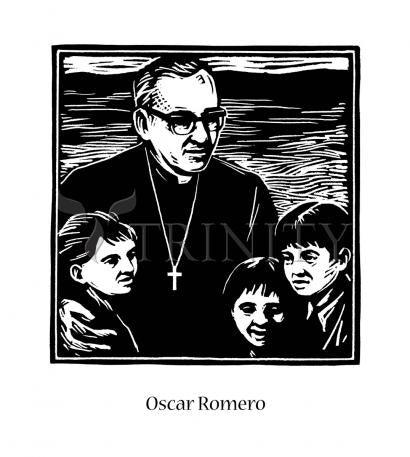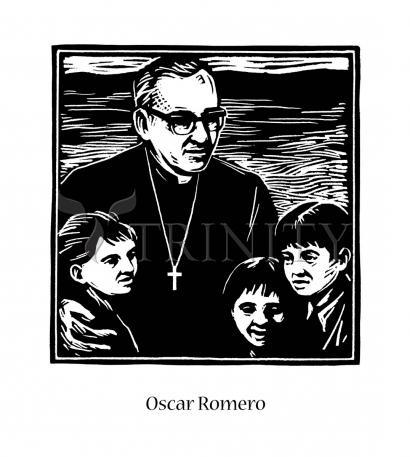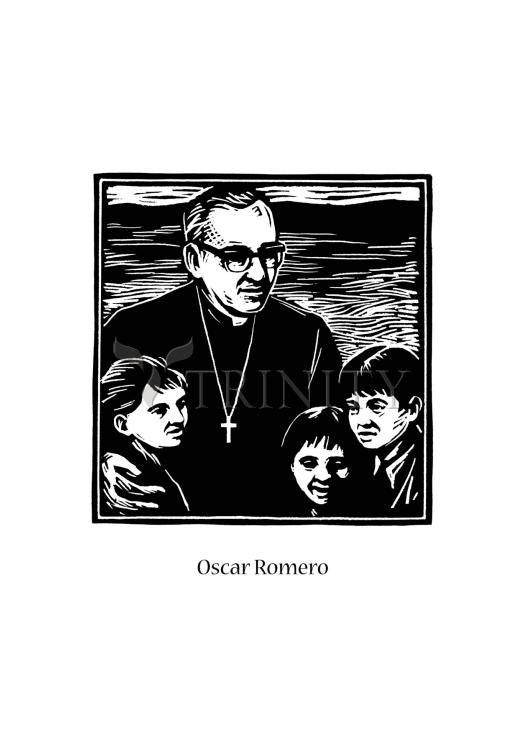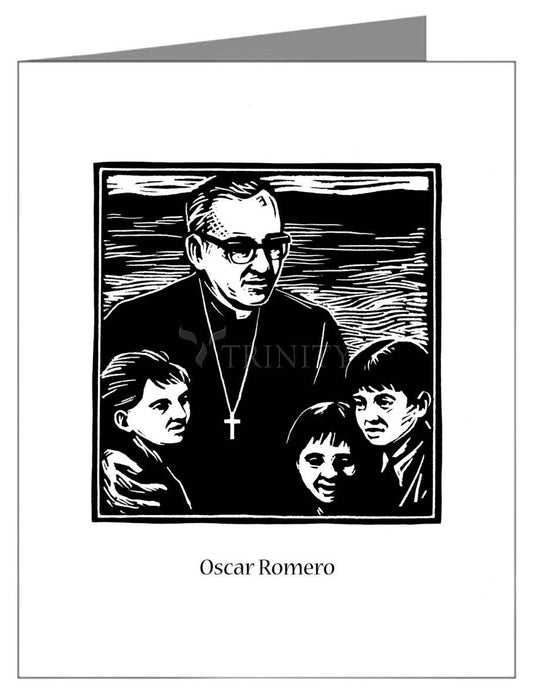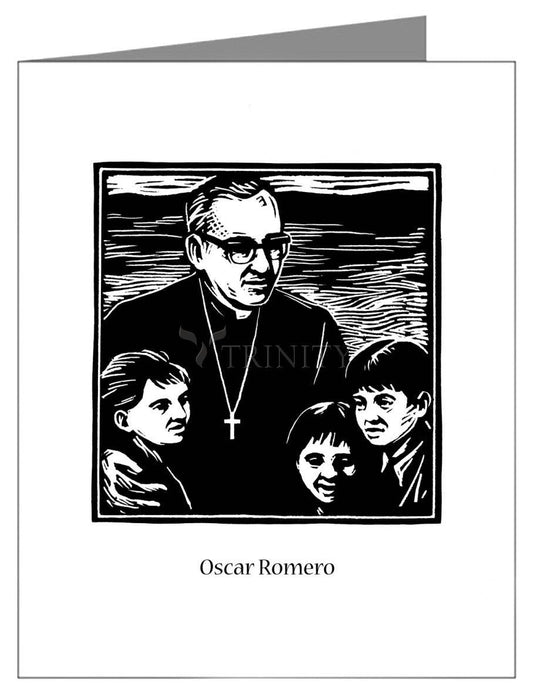Óscar Arnulfo Romero y Galdámez (August 15, 1917 - March 24, 1980) was a prominent Roman Catholic priest in El Salvador during the 1960s and 1970s becoming Archbishop of San Salvador in 1977. After witnessing numerous violations of human rights, he began to speak out on behalf of the poor and the victims of repression. This led to numerous conflicts, both with the government in El Salvador and within the Catholic Church. After speaking out against U.S. military support for the government of El Salvador, and calling for soldiers to disobey orders to fire on innocent civilians, Archbishop Romero was shot dead while celebrating Mass at the small chapel of the cancer hospital where he lived. It is believed that those who organised his assassination were members of Salvadoran death squads, including two graduates of the School of the Americas.
Oscar Arnulfo Romero y Galdámez was born in Ciudad Barrios, El Salvador, on August 15, 1917. His father apprenticed him to a carpenter when he was 13, but the young Romero felt a vocation for the Catholic priesthood and left home the following year to enter the seminary. He studied in El Salvador and in Rome and was ordained in 1942.
Romero spent the first two and half decades of his ministerial career as a parish priest and diocesan secretary in San Miguel. In 1970 he became auxiliary bishop of San Salvador and served in that position until 1974 when the Vatican named him to the diocese of Santiago de MarÃa, a poor, rural region which included his boyhood hometown. In 1977 he returned to the capital to succeed San Salvador's aged metropolitan archbishop.
Romero's rise to prominence in the Catholic hierarchy coincided with a period of dramatic change in the Church in Latin America. The region's bishops, meeting at MedellÃn, Colombia, in 1968 to discuss local implementation of the recommendations of the Second Vatican Council (1962-1965), had resolved to abandon the hierarchy's traditional role as defender of the status quo and to side, instead, with the continent's poor in their struggle for social justice. This radical departure divided both the faithful and the clergy.
During this period Oscar Romero's reputation was as a conservative, and on more than one occasion he showed himself skeptical of both Vatican II reforms and the MedellÃn pronouncements. For this reason his appointment as archbishop in 1977 was not popular with the socially committed clergy, to whom it appeared to signal the Vatican's desire to restrain them. To their surprise, Romero emerged almost immediately as an outspoken opponent of injustice and defender of the poor.
Romero's ordination as Bishop in 1970
By Romero's own account, he owed his change of attitude to his brief tenure as bishop of Santiago de MarÃa, where he witnessed first-hand the suffering of El Salvador's landless poor. Increasing government violence against socially committed priests and laypersons undermined his trust in the good will of the authorities and led him to fear that the Church and religion themselves were under attack. The assassination on March 12, 1977, of his long-time friend Jesuit Father Rutilio Grande brought a stinging denunciation from Romero, who suspended masses in the capital's churches the following Sunday and demanded the punishment of the responsible parties.
As Romero spoke out more and more frequently over the following months, he gathered an ever-increasing popular following who crowded into the cathedral to hear him preach or listened to his sermons over YSAX, the archdiocesan radio station. In his youth Romero had been a pioneer of broadcast evangelism in El Salvador, and he now turned the medium to great effect as he denounced both the violence of El Salvador's incipient civil war and the deeply-rooted patterns of abuse and injustice which bred it. In a country whose rulers regarded dissent as subversion, Romero used the moral authority of his position as archbishop to speak out on behalf of those who could not do so for themselves. He soon came to be known as the "Voice of the Voiceless."
When a coup d'état overthrew the Salvadoran government on October 15, 1979, Romero expressed cautious support for the reformist junta which replaced it. He soon became disenchanted, however, as the persecution of the poor and the Church did not cease. In February 1980 he addressed an open letter to U.S. President Jimmy Carter in which he called upon the United States to discontinue military aid to the regime. "We are fed up with weapons and bullets," he pleaded.
Romero's campaign for human rights in El Salvador won him many national and international admirers as well as a Nobel Peace Prize nomination. It also won him enemies, however. On March 24, 1980, an assassin fired from the door of the chapel where Romero was celebrating mass and shot him dead. The archbishop had foreseen the danger of assassination and had spoken of it often, declaring his willingness to accept martyrdom if his blood might contribute to the solution of the nation's problems. "As a Christian," he remarked on one such occasion, "I do not believe in death without resurrection. If they kill me, I shall rise again in the Salvadoran people."



